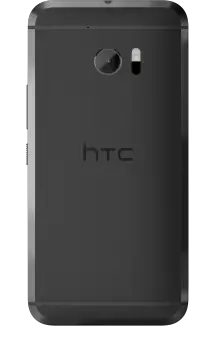
HTC 10 vs Samsung Galaxy S7 vs LG G5 vs iPhone 6S
HTC 10 Specs | Samsung Galaxy S7 Specs | LG G5 Specs
The HTC 10 has finally been revealed, and we now know enough about the phone to consider its worth up against some of the competition. Here’s a look at the device up against the LG G5, Samsung Galaxy S7 and the iPhone 6S.
Build Quality
When it comes to 2016’s phones, it’s all about looking and feeling good. Every phone features a prominent dose of metal of some sort. HTC is the pioneer in this area, though, with the company emphasizing metal unibody construction since the original HTC One’s launch. The HTC 10 improves on that concept with chamfered edges which make for nice comfortability and looks.
LG’s approach is unique: their metal unibody is coated in metallic paint to hide the antenna strips needed to allow proper attenuation through metal. Samsung’s metal is sandwiched between two plates of high-quality glass. Apple, meanwhile, goes with the tried and true metal unibody approach with exposed attenuation lines.
Display
The HTC 10 marks the first HTC flagship with a Quad HD display. Many will like to hear that, but others are adamant in their belief that 1080p was actually the better resolution as it’s less taxing on performance and battery life. The 5.2-inch display also uses Super LCD 5 technology. It won’t produce true black like AMOLED, but the blacks are deep, and it’s just as vibrant and crisp.
The Samsung Galaxy S7 and LG G5 both come in at that same Quad HD resolution, albeit it at slightly different screen sizes. Meanwhile, the iPhone 6S comes in at a mark higher just higher than 720p, though with a 4.7-inch display size it’s just as sharp as it needs to be.
Camera
With the disappointment of previous HTC phones in this department, the Taiwanese company was pressured to change this with the HTC 10. They did, or so says early analysis, as well as innovations such as having optical image stabilization in both the front and rear sensors. The 12MP/5MP duo also both enjoy wide open apertures of f/1.8. That’s lesser than the Galaxy S7’s f/1.7 aperture, but not so much that you’ll notice a big difference.
While the iPhone 6S and LG G5 can’t really compare to the Samsung Galaxy S7 in terms of overall low-light performance, the HTC 10 comes very close.
Performance
Inside the HTC 10 is a Snapdragon 820 chipset. That’s the same silicon that was quality enough to get Samsung back on board as a customer with the Galaxy S7 (they’re using Exynos in other markets, though), and LG uses the same in the LG G5, as well. With HTC Sense’s history of being light on system resources there’s little doubt the HTC 10 has enough juice to drive a stutter-free Android Marshmallow experience.
In terms of RAM, HTC didn’t decide to go overboard with anything. There’s a comfortable 4GB sitting inside, which is matched by both the Samsung Galaxy S7 and LG G5. The only thing separating any of these phones in terms of raw performance are things that can’t quite be judged this early on, such as file system optimization, memory speed, and software.
For battery life, the HTC 10 has a now-standard 3,000mAh battery inside, which the company says is enough to last for 2 days on typical usage.
Features
The HTC 10 has plenty in terms of bells and whistles, with a new era of BoomSound speakers, NFC, a fingerprint scanner and a USB Type-C port adding to the experience. Like the LG G5 and iPhone 6S, though, the HTC 10 is missing out on something that Samsung does really well in the Galaxy S7: wireless charging. If that doesn’t bother you, though, then there shouldn’t be much more for you to want.
Software
HTC tried some new tricks with HTC Sense 8 on top of Android 6.0 Marshmallow. The biggest is the addition of the Freestyle UI which lets you move icons and widgets however and wherever you want on your home screen. Those icons can even be stacked or layered on top of each other if you so wish. They’ve also included new tools to help you catch misbehaving apps and App Lock to protect your privacy while others use your phone.
Of course, Samsung’s phones aren’t without a ton of extra software additions, and the LG G5’s UI is better these days, albeit a bit basic without downloading the company’s advanced launcher.
Which phone has your attention?
Our HTC 10 coverage is still forthcoming, but you can check out our LG G5 Review and Samsung Galaxy S7 Review for more info on those 2 contenders. With the info you have right now, though, which of these phones do you think claims the throne in the early parts of 2016?